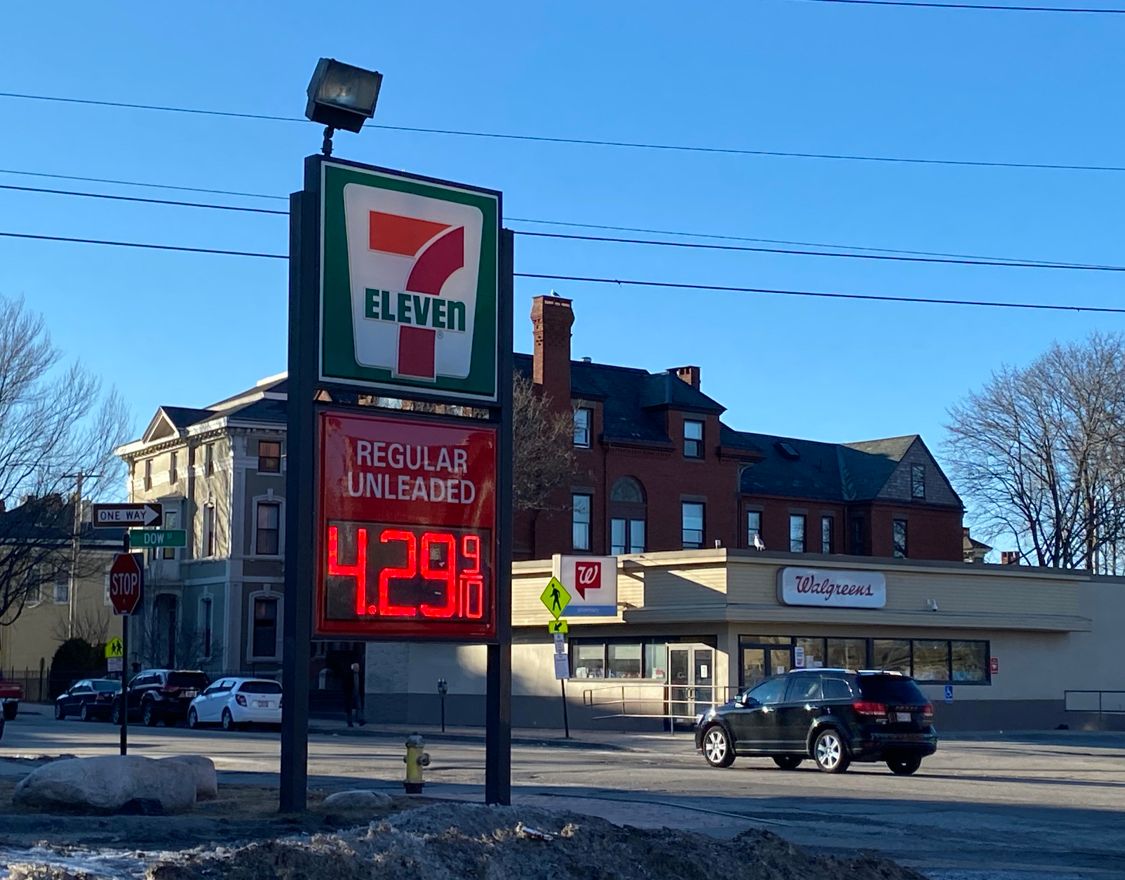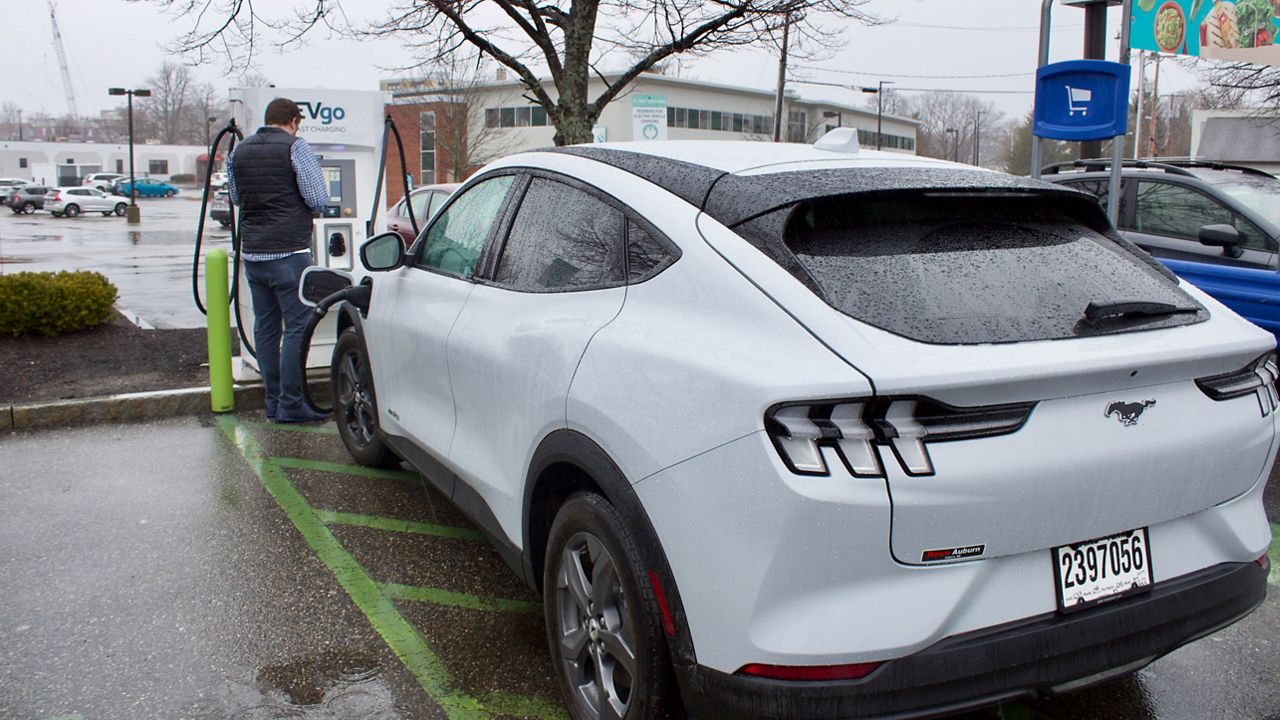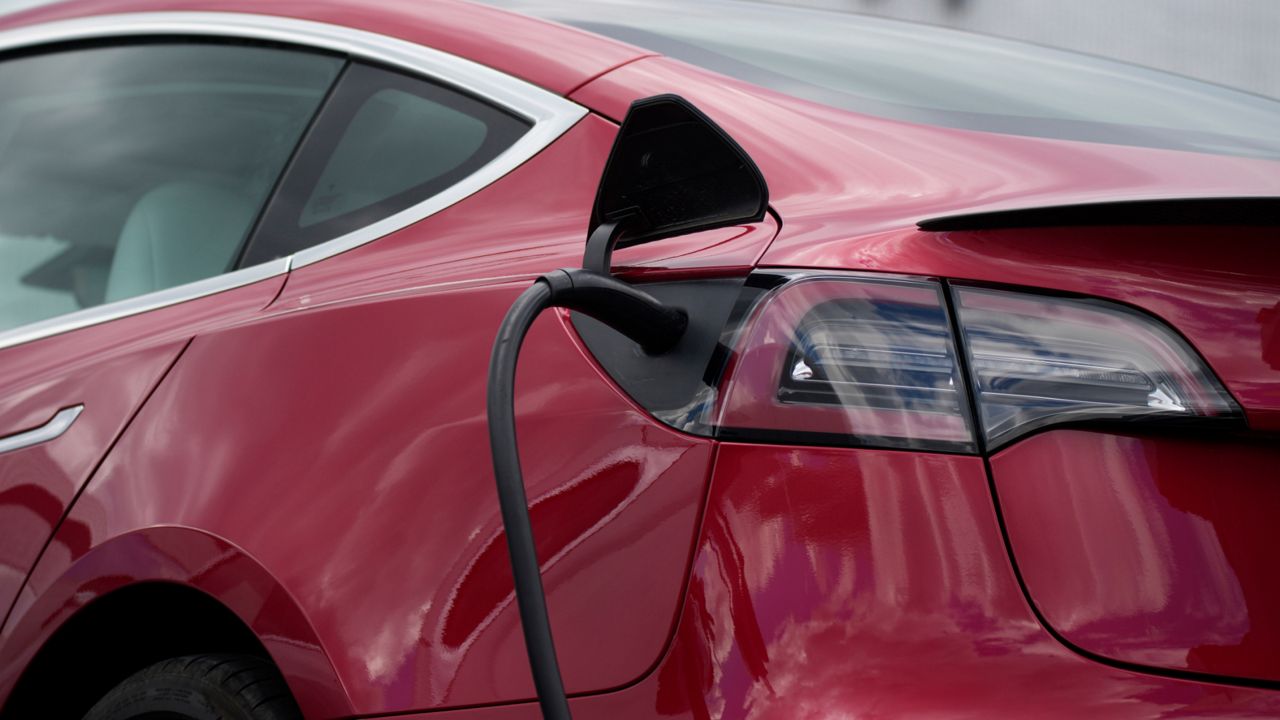Betsy Spence has made big changes in her life to try and be part of the solution to climate change. Her off-the-grid home in the rural Waldo County town of Palermo runs almost entirely on solar panels and batteries.
But when Spence drives her gas-powered Subaru to see her grandchildren in Augusta, she’s aware of an increasingly pricey way in which she hasn’t cut back on greenhouse gas emissions.
“I think my carbon footprint’s high right now because I have to drive everywhere,” Spence said. “I’m looking forward to not having to worry about (gas prices) as much. It seems like the time to be getting an electric car.”
Spence has been waiting weeks for a new electric Nissan Leaf she ordered from a Maine dealer in February. Its delivery was pushed back to late that February, then March and now April.
Across the state, these delays are at six months or longer for many prospective EV owners – especially those who decided to make the switch recently as gas prices soared.
The polling company Piplsay surveyed just over 1,000 American adults online in mid-March to gauge feelings about gas prices and EV adoption. More than two-thirds of people — especially younger folks — were nervous about gas prices, and about 40 to 50% were interested in EVs.
The reasons to switch are economic as well as environmental. EVs qualify for thousands in rebates and tax credits and need less ongoing maintenance than conventional vehicles. And even with high electricity prices, their charging costs are much lower than a tank of gas.
Maine saw a 60% increase in EV registrations last year, according to unreleased data provided by the state Department of Environmental Protection. There were as many new battery and plug-in hybrid EVs put on the road in the state in 2021 as in all of 2017-2020, for a new high of 5,877 EV registrations along with more than 22,000 conventional gas hybrids.
The state wants to put 41,000 more EVs on the road by 2025 and 219,000 by 2030 as part of its climate action plan, which ranks transportation — especially light-duty vehicles — as Maine’s top source of planet-warming emissions. And new interest in EVs amid the spike in gas prices would seem to be a promising sign.
Adam Lee, the board chair of Lee Auto Malls, said his dealerships had twice as many inquiries about EVs in January and February this year compared to the same time in 2021.
There’s just one problem: “Nobody has cars,” Lee said. “So what we’re seeing is an uptick in interest that does not translate to an uptick in sales.”

Global supply chain delays and shortages of computer chips, which power many systems in all vehicles but especially electric ones, have slowed EV sales in Maine significantly. Lee said lately, prospective buyers have been lucky to even find an EV at a dealership to test drive. Sales lots may look full as you drive by, he said, but that’s mostly thanks to creative parking strategies.
“Most dealers are running at about 10 to 15 percent of their normal inventory level (for all kinds of cars),” he said. “We're pre-selling stuff … it's just we're not able to build that inventory back up, so you can walk in, pick the red one and drive home.”
Lisa Daigle of West Bath is another customer waiting on a delayed Nissan Leaf. She said she’s happy in her hybrid in the meantime and isn’t driving enough to feel the sting from rising fuel costs. But it’s a different story for Daigle’s daughter, whose Prius was recently totaled and needed to be replaced quickly. Daigle said there were no Priuses available where they looked in Maine.
“She needed a set of wheels, so she got a Corolla, which gets great gas mileage (30-40 mpg) but it's not a Prius (at least 50 mpg),” Daigle said. “She works as a gig worker a lot, which is a lot of gasoline and a lot of mileage, and she said the other day, ‘I'm really missing my Prius.’”
Efficiency Maine offers instant rebates for EVs and hybrids as well as charging stations, but there has to be supply available for this money to get used. Data provided by the agency shows they gave out the fewest EV rebates in February of any month in the past year.
“About a year ago, the demand really started to skyrocket,” said Molly Siegel, Efficiency Maine’s EV program manager. “However… there is a downward trend starting in about September, October, November of 2021, and things have been pretty tight since then. But it's not due to a lack of demand – it's almost entirely due to inventory.”
Siegel said 2021 seemed to be a breakthrough for public interest in EVs, potentially driven by announcements from major auto-makers of new trucks and other models and commitments to eventually going gas-free, combined with increasing public availability of higher-speed chargers.
Even if supply chain delays linger for a few years, Siegel said it shouldn’t be an obstacle to reaching the state’s climate targets as demand and available options continue to increase.
“Ultimately, these markets will hit a tipping point where the market share of EVs just starts to really pick up,” she said. “We're taking a long view and it's definitely not completely out of reach yet because of this. Most folks will agree that the supply chain issues will not last forever.”
But the short-term squeeze may mean some drivers who need wheels quickly, like Lisa Daigle’s daughter, will miss out on their EV transition for now – and will see increased costs as a result.
A vehicle cost calculator from the federal Department of Energy lets drivers compare EVs and hybrids with gas-powered vehicles based on their driving habits and fuel prices. In Maine, gas is now around $4.18 a gallon, with residential electric rates averaging 17 cents per kilowatt-hour.
With these inputs and other assumptions that the federal tool considers normal — and with rebates and credits factored in — the electric Nissan Leaf is the clear cost winner in a comparison with a gas-powered Toyota Corolla and a part-electric Toyota Prius Prime.
The battery-powered Nissan earns a $2,000 state rebate and a $7,500 federal tax credit, bringing its cost down to $17,900. The plug-in hybrid Prius qualifies for a $1,000 rebate and $4,500 credit, putting its price at $22,720, while the Corolla goes for around $20,000.
At current gas and electric prices, the Corolla uses $1,471 a year in fuel while the Prius and Leaf cost under $700 a year to fuel and charge. If gas was back down around $2.50, the Corolla would only need about $870 a year in fuel – but the Prius’ fuel costs would drop, too, to $530.
“The great thing about EVs is that they can save consumers money,” Siegel said, “whether or not gas prices are through the roof.”
The cost to drive the Corolla also increases more over time than it does for the other two vehicles, the federal calculator says. And if the climate is your priority, those benefits are clearest of all. The Corolla’s emissions are 70 to 85% higher than either of the electric models.







